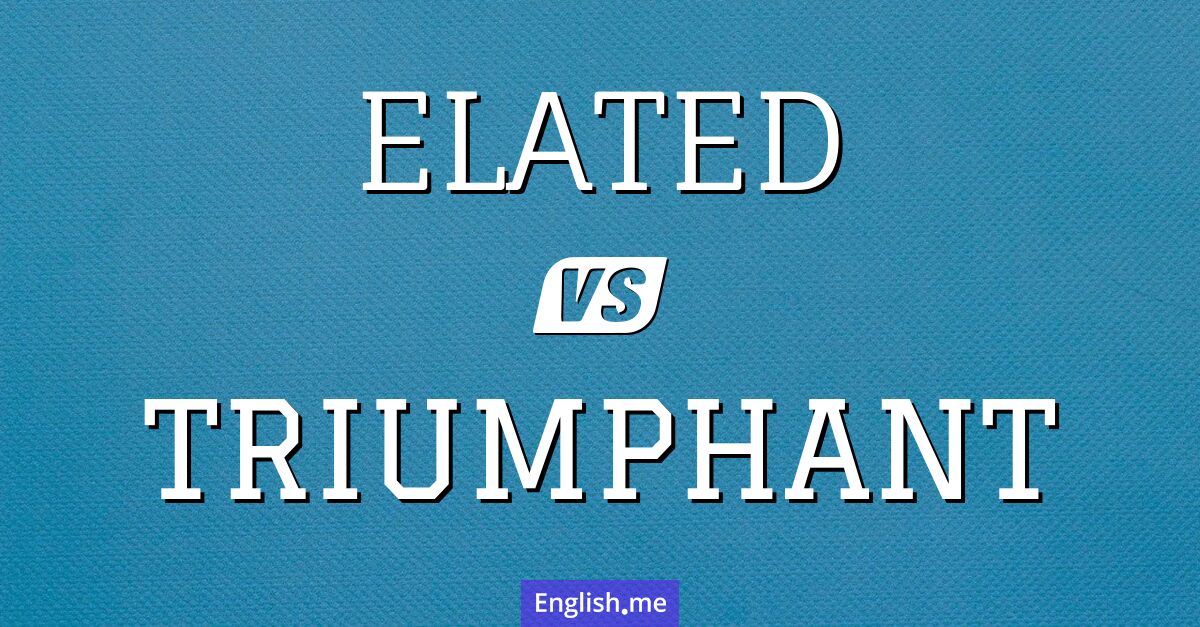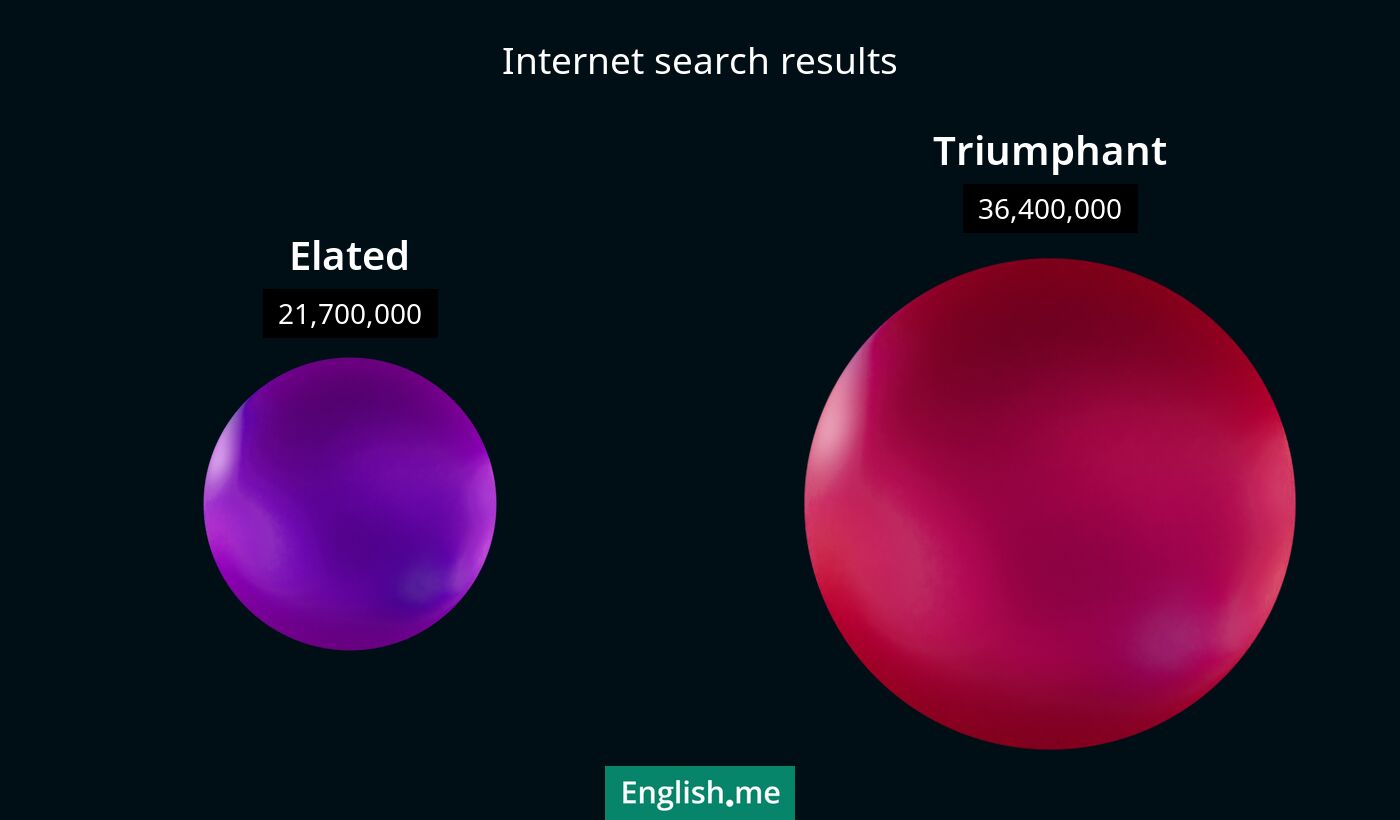"Elated" vs "triumphant": when joy meets victory
Reviewed and edited by  Lloyd Cooper 01/01/2025, 15:18
Lloyd Cooper 01/01/2025, 15:18
English.me team member

 What is similar?
What is similar?
Both "elated" and "triumphant" describe strong positive emotions such as joy, happiness, or pride. They convey a sense of elevated spirits and can be used to express delight.
 What is different?
What is different?
"Elated" refers to a state of extreme happiness or exhilaration, often without a specific cause related to victory. "Triumphant" specifically relates to a feeling of victory or success after overcoming challenges or achieving a goal.
 Which one is more common?
Which one is more common?

 Examples of usage
Examples of usage
Elated- She was elated to receive the job offer.
- He felt elated after hearing the good news.
- They were elated by the success of their project.
- The team was triumphant after winning the championship.
- She gave a triumphant smile after solving the complex problem.
- Their triumphant return was celebrated by everyone.

 English
English español
español française
française italiano
italiano deutsche
deutsche 日本語
日本語 polski
polski česky
česky svenska
svenska Türkçe
Türkçe Nederlands
Nederlands